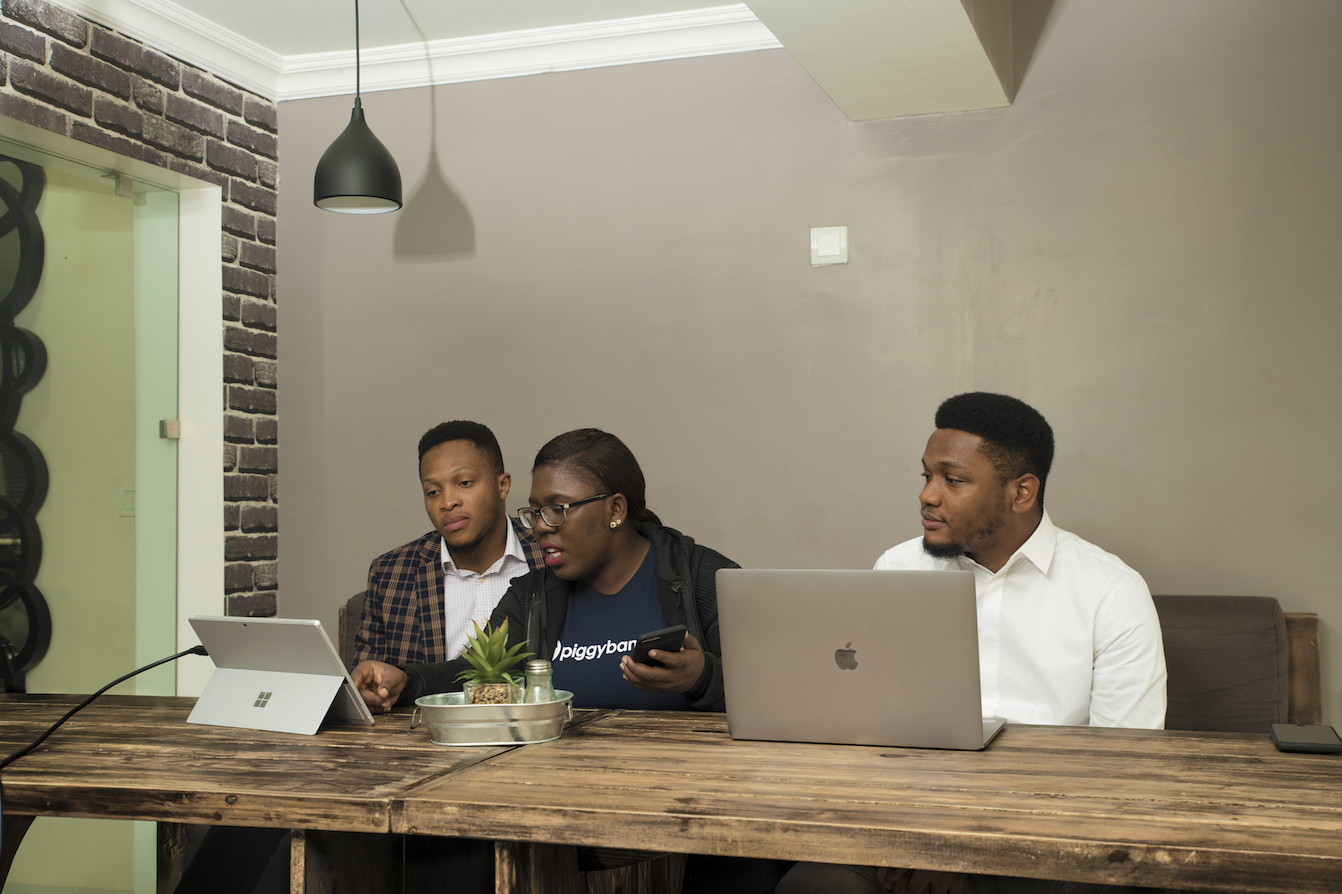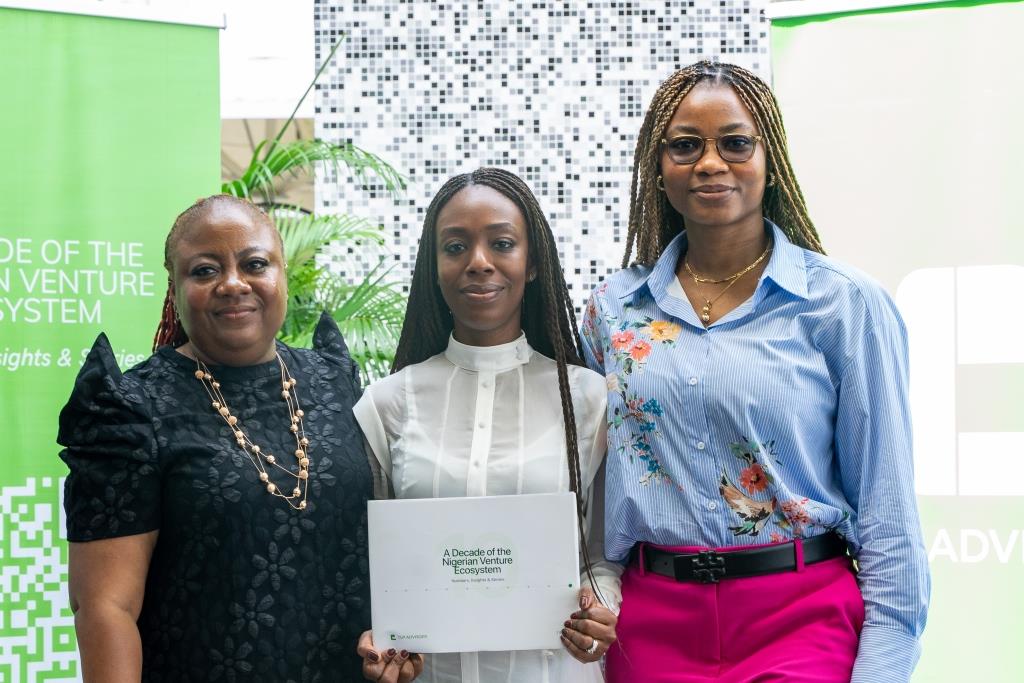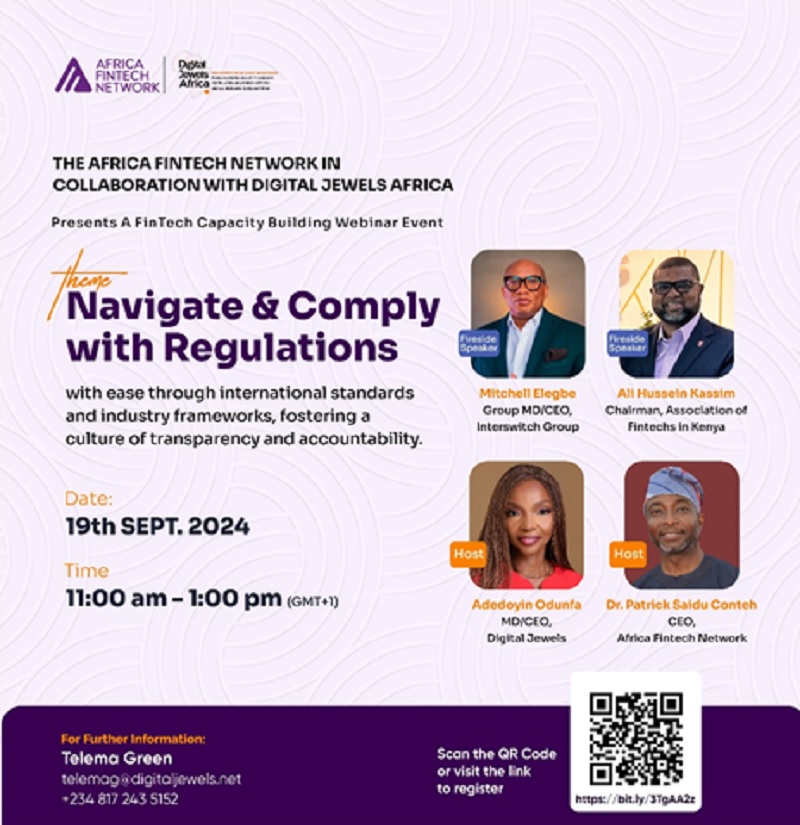Technology
Investors Give Piggybank Mobile App Savings Platform $1.1m

By Modupe Gbadeyanka
Owners of an online and mobile app savings platform targeted at African Millennials, Piggybank.ng, have announced closing seed funding of $1.1 million from high net worth individuals led by founder of LeadPath Nigeria, Mr Olumide Soyombo, with participation from international and pan-African investors Village Capital and Ventures Platform.
In a statement made available to Business Post yesterday, the Nigerian start-up company said it would deploy the VC investment for license acquisition and product development.
Piggybank.ng has recorded 20-35 percent month-on-month growth in user traction over the past 12 months; primarily from peer-to-peer recommendations, its referral program – Piggybank Stories, and grass-roots social media campaigns.
The start-up plans to also invest in additional marketing spend to accelerate its growth trajectory.
Having completed accelerator programs with Blackbox, the CcHub’s Pitch Drive, powered by Google for Entrepreneurs, and Google Launchpad Africa, Piggybank.ng has built a savings community of over 53,000 registered users of which approximately 60 percent are Nigerian Millennials, who have saved in excess of $5 million, with a savings growth of 3000 percent between 2016-17.
Founded in 2016 by Somto Ifezue, Odunayo Eweniyi and Joshua Chibueze, graduates of Covenant University, Nigeria, Piggybank.ng is positioned to fill a void for tens of millions of Nigerians, who have no access to credit, in a country where up to two years’ rent is often required upfront to secure a home.
Targeting low-middle income savers in Nigeria, of which there are 26.5 million with a market size of $2.2 billion, the fintech start-up is an automated savings platform where savers manage their finances by depositing small amounts of money [starting from as little as $1/day] on a daily, weekly or monthly basis, depending on their saving target, free of charge.
Savers can expect to earn on average 6 percent per annum on automated savings or 10.95 percent per annum on the fixed deposit product, Safelock and can withdraw funds once per quarter.
Piggybank.ng generates its revenues through asset management, which currently stands at 5-7 percent.
According to Odunayo Eweniyi, co-founder and COO of Piggybank.ng, “In a country such as Nigeria, almost everything has to be paid in advance. The majority of Nigerians struggle to save their income, manage cash flow and build credit, which is a huge problem as around 80 percent of Nigerians need to save a minimum of 40 percent of their monthly income, in order to survive.
“This is the sheer scale of the challenge we are embracing; to actively promote a savings culture in Nigeria and act as the savings infrastructure to millions of people who want a safe, transparent and innovative platform to assist them in managing their finances, on their journeys to financial freedom.”
Also commenting, Joshua Chibueze, co-founder and CMO of Piggybank said, “Today’s (Thursday) announcement allows us to expand and capitalise on the many opportunities that the market presents us with.
“Our growth so far has been stimulated almost entirely by peer-to-peer advocacy and our investment in the highest quality customer service, so we know the market is there, and the product has been built, modified, tested and ratified by users.
“With this fundraise, we can invest significantly in our people and products, as we build a digital financial warehouse accessible to millions of Africans whose savings woes we want to put firmly behind them.”
Olumide Soyombo, Co-Founder Leadpath adds: “Piggybank.ng is a leading example of how Africans are innovating to solve African problems. In this case, the team is applying technology and innovation to solve a problem facing millions of Nigerians; how can they accrue enough money to make down-payments on so many ‘life events’, in a market where there’s little to no access to credit?
“Led by a solid and experienced executive team, who have recorded significant growth after two years of bootstrapping, and have built a product that is ready to scale, I’m excited to have led other local angel investors this investment round, and to now work closely with the team to grow the platform”
In addition to securing its seed funding of $1.1 million, Piggybank.ng recently acquired a micro-financing license from the Central Bank of Nigeria (CBN), which provides the relevant regulatory cover, allowing them independence from partnering with banks.
This month, the company will be expanding its product range to include Smart Target, a group savings tool, that can be scaled from family-size to large corporations, based on the age-long West African tradition of ajo or esusu (savings in the local parlance) to leverage the power of communal savings and harness the network effect of accountability.
Available on iOS and Android, Piggybankers save an average of N20,000 per month (about $55) and in contrast to conventional bank savings accounts, the platform restricts withdrawals until an agreed date or users can withdraw their savings on a quarterly basis, whereby savings drawn outside of the agreed day attract a 5 percent early withdrawal fee.
A recent survey conducted by Piggybank.ng, which saw 5,000+ responses, revealed that the top 5 areas Nigerians are saving for include investments, starting a business, rent and unforeseen circumstances e.g health and vacations.
Co-founder and CEO of the firm, Somto Ifezue, stated that, “The research reveals that our savers are hardworking, focussed, and serious about reaching their savings goals. Already, we are seeing thousands of our users reaping the benefits of addressing their financial future by weaving Piggybank.ng into their daily lives, making it a savings ritual. We’re looking forward to helping thousands more in the coming months and years reach their financial goals”.
Technology
Expert Reveals Top Cyber Threats Organisations Will Encounter in 2026

By Adedapo Adesanya
Organisations in 2026 face a cybersecurity landscape markedly different from previous years, driven by rapid artificial intelligence adoption, entrenched remote work models, and increasingly interconnected digital systems, with experts warning that these shifts have expanded attack surfaces faster than many security teams can effectively monitor.
According to the World Economic Forum’s Global Cybersecurity Outlook 2026, AI-related vulnerabilities now rank among the most urgent concerns, with 87 per cent of cybersecurity professionals worldwide highlighting them as a top risk.
In a note shared with Business Post, Mr Danny Mitchell, Cybersecurity Writer at Heimdal, said artificial intelligence presents a “category shift” in cyber risk.
“Attackers are manipulating the logic systems that increasingly run critical business processes,” he explained, noting that AI models controlling loan decisions or infrastructure have become high-value targets. Machine learning systems can be poisoned with corrupted training data or manipulated through adversarial inputs, often without immediate detection.
Mr Mitchell also warned that AI-powered phishing and fraud are growing more sophisticated. Deepfake technology and advanced language models now produce convincing emails, voice calls and videos that evade traditional detection.
“The sophistication of modern phishing means organisations can no longer rely solely on employee awareness training,” he said, urging multi-channel verification for sensitive transactions.
Supply chain vulnerabilities remain another major threat. Modern software ecosystems rely on numerous vendors and open-source components, each representing a potential entry point.
“Most organisations lack complete visibility into their software supply chain,” Mr Mitchell said, adding that attackers frequently exploit trusted vendors or update mechanisms to bypass perimeter defences.
Meanwhile, unpatched software vulnerabilities continue to expose organisations to risk, as attackers use automated tools to scan for weaknesses within hours of public disclosure. Legacy systems and critical infrastructure are especially difficult to secure.
Ransomware operations have also evolved, with criminals spending weeks inside networks before launching attacks.
“Modern ransomware operations function like businesses,” Mitchell observed, employing double extortion tactics to maximise pressure on victims.
Mr Mitchell concluded that the common thread across 2026 threats is complexity, noting that organisations need to abandon the idea that they can defend against everything equally, as this approach spreads resources too thin and leaves critical assets exposed.
“You cannot protect what you don’t know exists,” he said, urging organisations to prioritise visibility, map dependencies, and focus resources on the most critical assets.
Technology
NCC Begins Review of National Telecommunications Policy After 26 Years

By Adedapo Adesanya
In a consultation paper released to the public, the commission said it is seeking input from stakeholders, including telecom operators, tech companies, legal experts, and the general public, on proposed revisions designed to reposition Nigeria’s telecommunications framework to match current digital demands. Submissions are expected by March 20, 2026.
The NTP 2000 marked a turning point in Nigeria’s telecom landscape. It replaced the 1998 policy, introducing full liberalisation and a unified regulatory framework under the NCC, and paved the way for the licensing of GSM operators such as MTN, Econet (now Airtel), and Globacom in 2001 and 2002.
Prior to the NTP, the sector was dominated by Nigerian Telecommunications Limited (NITEL), a government-owned monopoly plagued by obsolete equipment, low teledensity, and poor service. At the time, Nigeria had fewer than 400,000 telephone lines for the entire country.
However, the NCC noted that just as the 1998 policy was overtaken by global developments, the 2000 framework has become structurally misaligned with today’s telecom reality, which encompasses broadband, 5G networks, satellite internet, artificial intelligence, and a thriving digital economy worth billions of dollars.
“The rapid pace of technological change and emerging digital services necessitate a comprehensive update to ensure the policy continues to support economic growth while protecting critical infrastructure,” the Commission stated.
The review will target multiple chapters of the policy. Key revisions include: Enhancements on online safety, content moderation, digital services regulation, and improved internet exchange protocols; a modern framework for satellite harmonisation, coexistence with terrestrial networks, and clearer spectrum allocation to boost service quality, and policies to address fiscal support, reduce multiple taxation, and lower operational costs for operators.
The NCC is also proposing entirely new sections to the policy to address emerging priorities. Among the key initiatives are clear broadband objectives aimed at achieving 70 per cent national broadband penetration, with a focus on extending connectivity beyond urban centres to reach rural communities.
The review also seeks to formally recognise telecom infrastructure, including fibre optic cables and network masts, as Critical National Infrastructure to prevent vandalism and enhance security.
In addition, the commission is targeting the harmonisation of Right-of-Way charges across federal, state, and local governments, alongside the introduction of a one-stop permitting process for telecom deployment, designed to reduce bureaucratic delays and lower operational costs for operators.
According to the NCC, the review aims to make fast and affordable internet widely accessible. “The old framework was largely voice-centric. Today, data is the currency of the digital economy,” the commission said, highlighting the need to close the urban-rural broadband divide.
The consultation process is intended to gather diverse perspectives to ensure the updated policy reflects current technological trends, market realities, and consumer needs. By doing so, the NCC hopes to maintain the telecommunications sector’s role as a key driver of economic growth and digital inclusion.
Technology
FG to Scrutinise MTN’s $2.2bn Full Take Over of IHS Towers

By Adedapo Adesanya
The Minister of Communications, Innovation and Digital Economy, Mr Bosun Tijani, says the Nigerian government is assessing MTN Group’s acquisition of IHS Towers to ensure the deal aligns with Nigeria’s telecommunications development goals.
On Tuesday, MTN Group said it has agreed to acquire the remaining 75.3 per cent stake in IHS Holding Limited in an all-cash deal valued at $2.2 billion. The deal will be funded through the rollover of MTN’s existing stake of around 24 per cent in IHS, as well as about $1.1 billion in cash from MTN, roughly $1.1 billion from IHS’s balance sheet, and the rollover of no more than existing IHS debt.
Mr Tijani, in a statement, said the administration of President Bola Tinubu has spent the past two years strengthening the telecom sector through policy clarity, regulatory support, and engagement with industry stakeholders, boosting investor confidence and sector performance.
“Recent financial results from key operators show improved profitability, increased investment in telecoms infrastructure, and operational stability across the sector,” he said.
“These gains reflect the resilience of the industry and the impact of government reforms.”
The minister added that telecommunications infrastructure is critical for national security, economic growth, financial services, innovation, and social inclusion.
“We will undertake a thorough assessment of this development with relevant regulatory authorities to review its impact on the sector,” Mr Tijani said.
He added that the review aims to ensure market consolidation or structural changes, protect consumers, safeguard investments, and preserve the long-term sustainability of the telecom industry.
Mr Tijani also said the government remains committed to maintaining a stable and forward-looking policy environment to keep Nigeria’s telecommunications sector strong and sustainable, in line with the administration’s broader digital economy vision.
Upon completion, the transaction will see MTN transition from being a minority shareholder in IHS to a full owner. It will also see IHS exit from the New York Stock Exchange and become a wholly owned subsidiary of MTN.
For MTN, the deal represents a decisive shift as data demand surges and digital infrastructure becomes increasingly strategic with a booming digitally-oriented youth population on the continent.
-

 Feature/OPED6 years ago
Feature/OPED6 years agoDavos was Different this year
-
Travel/Tourism10 years ago
Lagos Seals Western Lodge Hotel In Ikorodu
-

 Showbiz3 years ago
Showbiz3 years agoEstranged Lover Releases Videos of Empress Njamah Bathing
-

 Banking8 years ago
Banking8 years agoSort Codes of GTBank Branches in Nigeria
-

 Economy3 years ago
Economy3 years agoSubsidy Removal: CNG at N130 Per Litre Cheaper Than Petrol—IPMAN
-

 Banking3 years ago
Banking3 years agoSort Codes of UBA Branches in Nigeria
-

 Banking3 years ago
Banking3 years agoFirst Bank Announces Planned Downtime
-

 Sports3 years ago
Sports3 years agoHighest Paid Nigerian Footballer – How Much Do Nigerian Footballers Earn





















